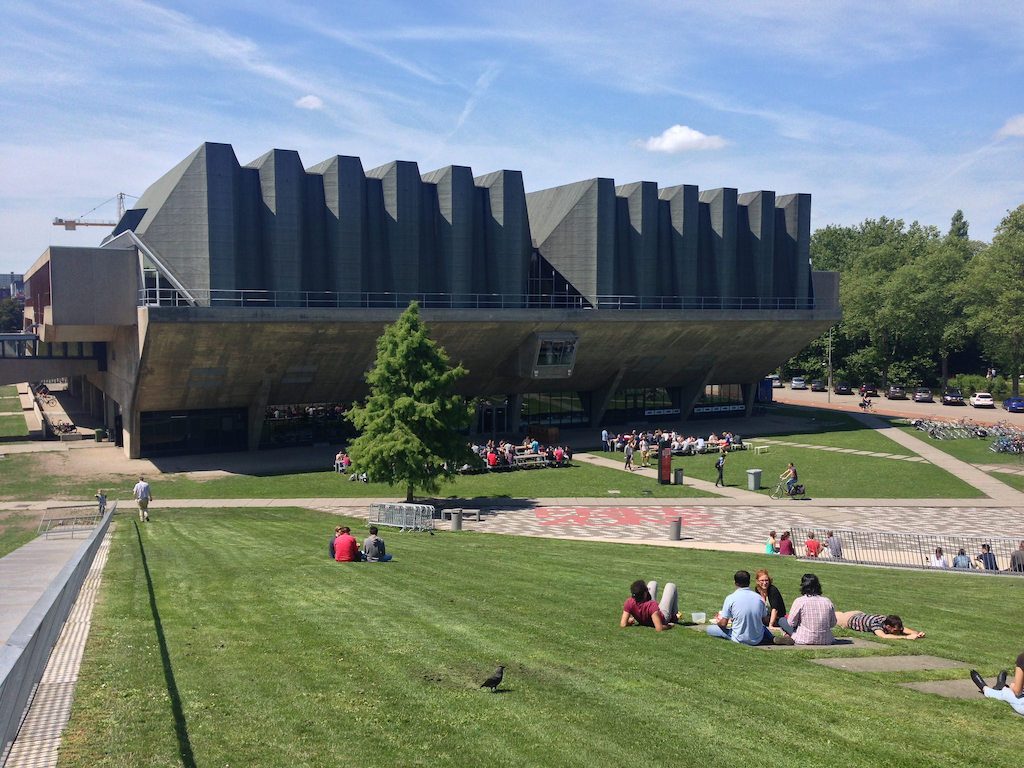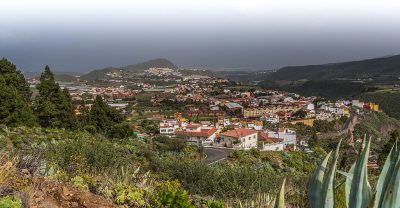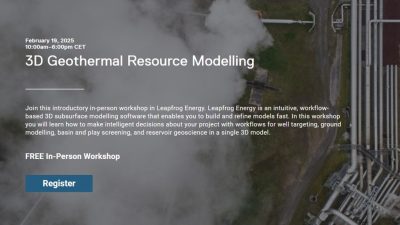Posición de doctorado – Reservorios geotérmicos fracturados, TU Delft, NL
La TU Delft ha publicado un puesto vacante de doctorado en el nuevo Centro de Simulación Energi para Geoenergía de la TU Delft en yacimientos geotérmicos fracturados.
Se ha puesto a disposición un puesto de doctorado totalmente financiado en el nuevo Centro de Simulación Energi para Geoenergía de TU Delft, que se centra en descifrar los controles clave sobre el flujo de fluidos en depósitos geotérmicos utilizando el aprendizaje automático.
Información en Inglés:
In the global north, over 40% of the total energy consumption is used for heating and cooling of buildings. Geothermal energy has the potential to significantly decarbonise energy supplies not only for heating and cooling but also for electricity generation, and therefore make a major contribution to the transition to a sustainable and just low-carbon energy future.
Naturally occurring fractures often provide the primary permeability for fluid flow and heat transport in many geothermal reservoirs. However, predicting heat flow through fracture networks to assess the viability of a potential geothermal development is challenging due to the inherent uncertainties in the fracture network and its properties. To date, no systematic studies have aimed to establish the properties that fundamentally control the characteristics of heat flow in naturally fractured geothermal reservoirs. For example, it is unclear how the combination of hydraulic connectivity within the fracture network and the size of the less permeable matrix blocks impact heat flow, i.e., under which conditions heat flow in a fractured geothermal reservoir can be characterised by effective properties that approximate a single porosity system and when heat flow needs to be characterised by more complex approaches.
New data from outcrop analogues for fractured reservoirs (e.g., imagery from drones or lidar for geometric attribute identification), state-of-the-art numerical simulations that resolve fractures properly in reservoir models, and machine learning techniques now enable us to characterise the type of flow behaviours that can occur in fractured geothermal reservoirs and establish the links between fracture network properties and associated flow behaviours.
The hypothesis central to this PhD thesis is therefore that there is only a small number of heat flow behaviours in fractured geothermal reservoirs that can be correlated to a reasonably well constrained set of fracture network properties. More specifically, the PhD thesis aims to answer the following questions:
How many endmembers/types of fracture network geometries and associated unique flow behaviours exist in geologically plausible fracture networks?
What are the key fracture network characteristics that control these heat flow behaviours And are they consistent across different lithologies (e.g., carbonates, sandstone, basement rocks)?
Can we estimate these key fracture network geometries and properties, and their uncertainty bounds, from the available static and dynamic reservoir data?
How do we best design geothermal reservoir models that preserve the key fracture network properties and associated uncertainties?
Do these new reservoir models lead to more reliable production forecasts for fractured geothermal reservoirs?
This PhD project is fully funded by Energi Simulation. The you will join a vibrant and internationally renowned department working across a wide range of geoenergy challenges, and become part of the department’s newly established Energi Simulation Centre for Geoenergy, benefitting from its extensive national and international research network. In this role you will receive extensive training in geothermal reservoir engineering, fluid flow in fractured geological formations, fracture network characterisation and modelling, machine learning, geothermal reservoir simulation, and how to present the research results at conferences and in peer-reviewed results. These skills will equip you with a unique set of skills to work on range of geoenergy challenges in major energy companies, consultancies, or in academic or national research centres.
Applications due before 23:59 CEST on 30 September 2022 via the website, linked below. Interviews to be held in October 2022.
For requirements and details, see the full post via TU Delft below.
Fuente: TU Delft


















